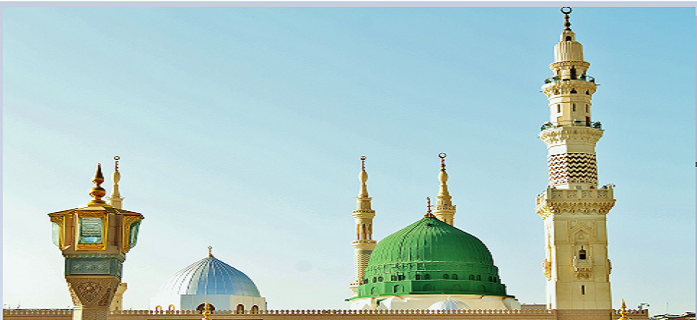The AMANAH 'TRUST' Part 2
Yousuf Saleh 31st January 2014
All Praise is due to Allah (swt) who is the Sustainer of all the Universe. May the peace and
blessings of Allah (swt) be upon Muhammad (saws), his family, his companions and all those who
follow him in righteousness until the day of resurrection.
Respected brothers and sisters at home, on the basis of last week’skhutba,Today’s khutba is about
‘AL-AMANAH’ part two. Allah (swt) said in Quran, Ch-4,Verse58. “Surely, Allah (swt)
commands you to fulfil trust obligations, towards those entitled to them and that, when you judge
between people, judge with fairness.” The Prophet (saw) hasstressed on the fulfilment of trust
obligations. In a hadith mentioned in Baihaqi, Anas (RA) says: 'It must have been a rare sermon
indeed in whichthe Prophet (saw) may not have said the words:
LAA IMANA LIMAN LA
AMANATA LAHU, WALA DEENA LIMAN LA A’HDA LAHU’”
"One who does not fulfil trust obligations has no Faith with him; and one who does not stand by his
word of promise has no religion with him." The word AMANAT mentioned in these verses and
Ahadith is in the plural form. This is not simply limited to cash or kind which someone may have
entrusted to someone else for safe-keeping until demanded, which is the most normal and
commonly understood form of Amanah, but also, many other kinds. Allah commands you to fulfil
trust obligations towards those entitled to them.' As to who is the target of this command, it could
have been addressed to the general body of Muslims, or it could have been addressed particularly,
to those in authority. What is more obvious here is that the verse is addressed to everyone who
holds anything in trust. This includes many and also those in authority.
Respected brothers and sisters at home,
The greatestkinds of Amanah upon Muslims are Tawheed, certifying theoneness of Allah (swt). The
Amanah is in observing all types of Ibadah with proper sincerity. This is why committing SHIRK,
making partners with Allah (swt) is the greatest oppressionand kyanah.
Following the Sunnah of the Prophet (saw) is an important Amanah. Following the innovations and
indulging in misleading methods are worst types of betrayals.andAl Kyanah. Allah (swt) said in
Quran, Ch-8 and verse 27. ‘O you who have Iman! Do not betray Allah and the Rasool and do not
knowingly betray your mutual trusts’.
Respected brothers and sisters at home, we should ponder over this and today’s Muslim countries.
Muslims are fighting against the laws of the Quran. Many Muslim countries, 80-90 percent ofthose
who are Muslim think that Quranic injunctions are not suitable for a countries constitutionand not
appropriate for parliaments. Where are the Amanah of these Muslims? We see more Shariah
injunctions established in Britain than any other Muslim country. We are very grateful to this
county for providing suchfairnessinrules.
Respected brothers and sisters at home, I mentioned earlier, verse 58 of chapter 4. Which is ---
Surely, Allah (swt) commands you to fulfil trust obligations, towards those entitled to them—look
at the background of the revelation of the verse and comprehend the attitude of the Muslimcountries leadership and the attitude of leaderships here, which are more close to the principles of Islam?
The verse was revealed in the background of a particular event which related to the safeguarding
service of the Kabah, before the beginning of Islam. Those who were appointed to serve the House
of Allah (swt) in a particular area of responsibility were regarded as people of great prestige and
distinction in the community. Therefore, different areas of services were distributed over different
people. It was from the time of Jaahiliyyahthat, during the days of Hajj, the service of providing
drinking water to pilgrims from the well of Zamzam was entrusted to Sayyidina 'Abbas (RA), the
revered uncle of the Prophet (saw). This was known as Siqiyah. Some other services similar to this
were in the charge of Abu Talib, another uncle of the Prophet (saw).
Likewise, the safeguarding duty of keeping the keys to the House of Allah (swt) and, of opening
and closing it during fixed days had been given to 'Uthman ibn Talhah. According to a personal
statement of 'Uthman ibn Talhah, the Kabah was opened every' Monday and Thursday during the
period of Jaahiliyyah and people would use the occasion to have the honour of entering the sacred
House. Once before Hijrah, the Prophet (saw) came with some of his Companions in order to enter
the Kabah. 'Uthman ibn Talhah had not embraced Islam until that time. He stopped the Prophet
(saw) from going in, and he showed an attitude which was very rude.
The Prophet (saw) showed great restraint, tolerated his harsh words, then said: '0 'Uthman, a day
will come when you would perhaps see this key to the Baytullah in my hands when I shall have the
power and choice to give it to anyone I choose.' 'Uthman ibn Talhah said: 'If this happens, the
Quraysh will then be all uprooted and disgraced.' He said: 'No, the Quraysh will then be all
established and very honourable indeed.' UltimatelyAllah (swt) has established the honour and the rights of His Prophet, and made him the
greatest role model of humanity through his trustworthiness.
I will continue from here next week Insha Allah.
May Allah bless you and have mercy upon you all.

